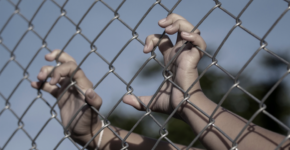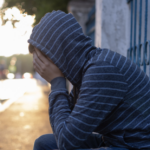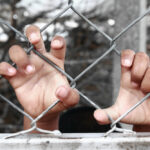Queensland Gets Tough on Youth Crime

Just days after the Palaszczuk government announced it would be getting tougher on youth crime, statistics released in Queensland suggest that in the space of just 12 months, well over 1,000 children were arrested on suspicion of property crimes.
The numbers come from a report released by the Queensland Police Service which says a dedicated operation, named Operation Uniform Cygnus, targeted residents in Townsville and surrounding areas suspected of having been involved in thefts, break and enters and robberies.
Adults boast of their conquest over children
According to the report, three-quarters of the 1,322 people arrested and charged with more than 4,000 offences during the Operation were under the age of 18 years.
Detective Acting Inspector Chris Hicks was chuffed by the numbers, telling the media the youths were part of groups involved in “high end” property crimes and, in most cases, “repeat offenders”.
Putting aside the statement ignores the presumption of innocence, the fact police continue to focus on arresting and charging kids in cahoots with a government intent on incarcerating them as long as possible raises questions about whether this is the right approach to dealing with troubled children who may have gone off the rails – kids who often come from disadvantaged backgrounds and are in desperate need of support and assistance, to put them back on the right path.
Tough new laws
Premier Palaszczuk has announced ten reforms which focus on punishment rather than support and prevention, supported by a multi-million dollar funding commitment as part of broader legislative changes to be introduced to the state’s parliament in February this year.
Acting Detective Senior Sergeant Fred Starr supports the campaign, saying police have had enough of “constantly” dealing with children, “between 10 and 17”.
The age of criminal responsibility
One of the issues here, of course is the age, of culpability – otherwise known as criminal responsibility – which is 10 years of age in Australia.
In many countries it is now 14 years of age.
In 2018, the Council of Attorneys-General began reviewing this issue. However, the Council said in 2020 that it needed more time to consider alternative ways to deal with young offenders.
Yes, victims need our consideration and our sympathy, and of course, community expectations around punishments need to be met. But we also know that locking up children does not deter them from crime, but rather, in most cases, often sets them up for a lifetime of crime. Studies show that young adults who have regular contact with the criminal justice system at a young age are very likely to simply transfer to adult prison when the time comes.
Even being locked up at the time of arrest can be a highly traumatic experience that can take years to recover from.
There needs to be consideration too for children with disabilities, or health issues, physical or cognitive, who don’t always get appropriate support within the detention system.
Australia continues to lock up hundreds of children every year
Despite the research, and the damning evidence of what actually occurs in some of these centres, evidenced by atrocities committed at Don Dale in the Northern Territory and also Banksia Hill Youth Detention Centre in Western Australia, and yet, as a nation we continue to sanction the idea of putting hundreds of children into detention each year, the vast majority of whom are indigenous, in the hope of solving the issue of youth crime.
It’s clearly not working. Not only is it wasted taxpayer dollars, it’s actually hindering Australia’s growth as a nation and to some degree, sabotaging the future.
Without meaningful, transformative change, we will – as we have now – continue to have large numbers of people languishing in prisons at vast expense, rather than being given the opportunity to rehabilitate in order to be able to meaningfully contribute to our communities.
Rehabilitation works, but it needs serious investment
Rehabilitation does work, in the majority of cases. As does early intervention. A number of countries around the world are looking at the examples set by Norway and Portugal which have made large investments in decriminalising a lot of minor crimes and in rehabilitation as an alternative to detention which are showing very positive results in both crime reduction and lower incarceration rates.
But not only does this require a re-think of the way the justice system operates, particularly where youth are concerned, it requires a large investment in people who are trained and able to help these young people to make better choices.
Each year, we spend more and more on police, and that should be up for debate too. What we are seriously lacking is professionals who have the skills and resources – and the time – to deal with troubled youths.







